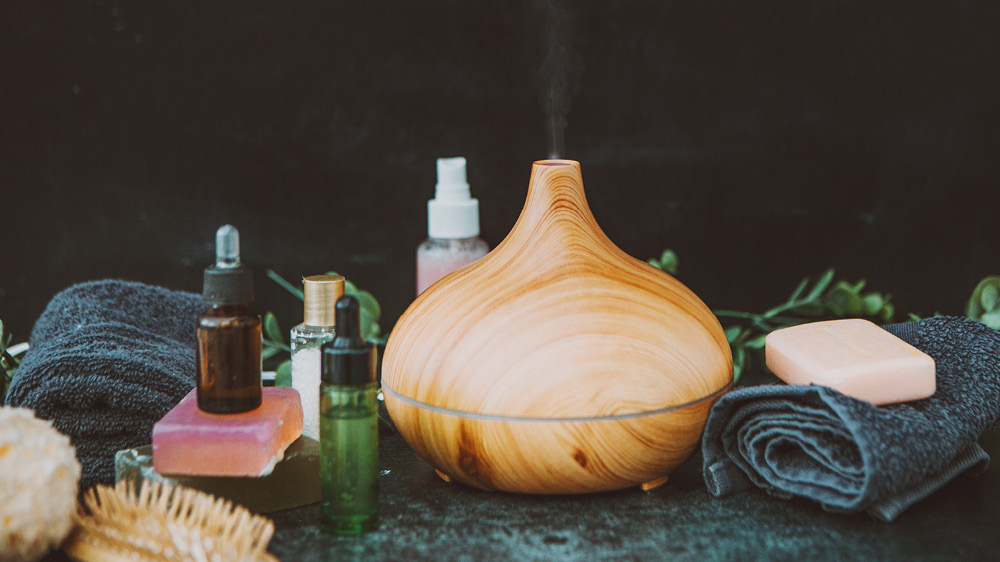Uses of aromatherapy in cancer treatments
June 28, 2023By: Jessica Kennedy, MSN-RN, CCAP, CHC
Categories: Cancer Care
While going through cancer treatment, many people also explore complimentary therapies to help supplement their care. Combining aromatherapy practices with standard cancer treatment can offer a complementary, holistic approach to cancer care.
Essential oils and aromatherapy can offer some benefits in relieving cancer treatment side effects.
What is aromatherapy?
Aromatherapy uses essential oils derived from plants to support health and well-being with a focus on the mind-body-spirit connection. Aromatherapy is used with standard cancer treatments along with other well-being practices including:
- Acupuncture
- Breath work
- Exercise
- Guided imagery
- Hypnosis
- Meditation
- Mindfulness
- Reflexology
- Yoga
How essential oils work
Essential oils are concentrated plant extracts that interact with your olfactory system, sense of smell. Your body can absorb essential oils several ways.
- Indirect inhalation: Using a room diffuser to inhale the scents of the oils through the air.
- Direct inhalation: Using a nasal inhaler made by floating drops of an essential oil on a cotton wick and breathing in.
- Massage: Essential oils are diluted into a carrier oil and massaged into the skin.
- Mixtures: Essential oils mixed with bath salts and lotions or applied to bandages or cotton.
Essential oils and benefits
Studies show that essential oils can be helpful in reducing anxiety, nausea, depression, pain, stress and hot flashes in patients with cancer. Different essential oils have different benefits.
- Lavender helps relax and soothe discomfort from pain.
- Bergamot can alleviate anxiety and stress.
- Sweet orange helps with depression, anxiety and stress. It also soothes an upset stomach when inhaled or diluted with a carrier oil on the stomach.
- Ginger helps settle an upset stomach or stuffy nose, and eases pain.
- Peppermint settles an upset stomach or stuffed nose and relieves headaches.
Are essential oils safe to use?
While essential oils are generally safe, they are also very concentrated. It’s important to dilute the oils before using to minimize the risk of irritation. Before using an essential oil, test the oil on a small area of skin and watch for any reactions.
Some essential oils are toxic when ingested and should not be used near your mouth. Talk with your cancer treatment team and health care provider before starting aromatherapy.

